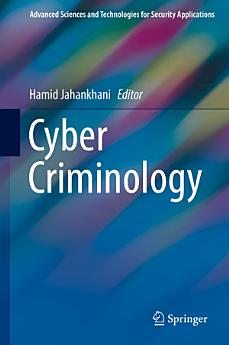eBook 정보
This book provides a comprehensive overview of the current and emerging challenges of cyber criminology, victimization and profiling. It is a compilation of the outcomes of the collaboration between researchers and practitioners in the cyber criminology field, IT law and security field.
As Governments, corporations, security firms, and individuals look to tomorrow’s cyber security challenges, this book provides a reference point for experts and forward-thinking analysts at a time when the debate over how we plan for the cyber-security of the future has become a major concern.Many criminological perspectives define crime in terms of social, cultural and material characteristics, and view crimes as taking place at a specific geographic location. This definition has allowed crime to be characterised, and crime prevention, mapping and measurement methods to be tailored to specific target audiences. However, this characterisation cannot be carried over to cybercrime, because the environment in which such crime is committed cannot be pinpointed to a geographical location, or distinctive social or cultural groups.
Due to the rapid changes in technology, cyber criminals’ behaviour has become dynamic, making it necessary to reclassify the typology being currently used. Essentially, cyber criminals’ behaviour is evolving over time as they learn from their actions and others’ experiences, and enhance their skills. The offender signature, which is a repetitive ritualistic behaviour that offenders often display at the crime scene, provides law enforcement agencies an appropriate profiling tool and offers investigators the opportunity to understand the motivations that perpetrate such crimes. This has helped researchers classify the type of perpetrator being sought.
This book offers readers insights into the psychology of cyber criminals, and understanding and analysing their motives and the methodologies they adopt. With an understanding of these motives, researchers, governments and practitioners can take effective measures to tackle cybercrime and reduce victimization.
저자 정보
Professor Hamid Jahankhani gained his PhD from the Queen Mary College, University of London. In 1999 he moved to the University of East London (UEL) to become the first Professor of Information Security and Cyber Criminology at the university in 2010. Over the last 15 years Hamid has also been involved in developing new and innovative programmes and introducing “block mode” delivery approach at UEL, including MSc Information Security and Computer Forensics, Professional Doctorate Information Security.
Hamid’s principal research area for a number of years has been in the field of cyber security, information security and digital forensics. In partnership with the key industrial sectors, he has examined and established several innovative research projects that are of direct relevance to the needs of UK and European information security, digital forensics industries, Critical National Infrastructure and law enforcement agencies. Hamid has planned, proposed and managed several collaborative projects, and secured a substantial research income of up to £6m.
Professor Jahankhani is the Editor-in-Chief of the International Journal of Electronic Security and Digital Forensics, and International Journal of Electronic democracy, both published by Inderscience and general chair of the annual International Conference on Global Security, Safety and Sustainability (ICGS3). Hamid has edited and contributed to over 15 books and has over 150 conference and journal publications together with Various BBC radio interviews. Hamid has supervised to completion 13 PhD and professional doctorate degree students and overseen 67 PhD students progressing. In summer 2017 Hamid was trained as the GCHQ “cyberist” to train the next generation of cyber security experts through GCHQ CyberFirst initiative.






